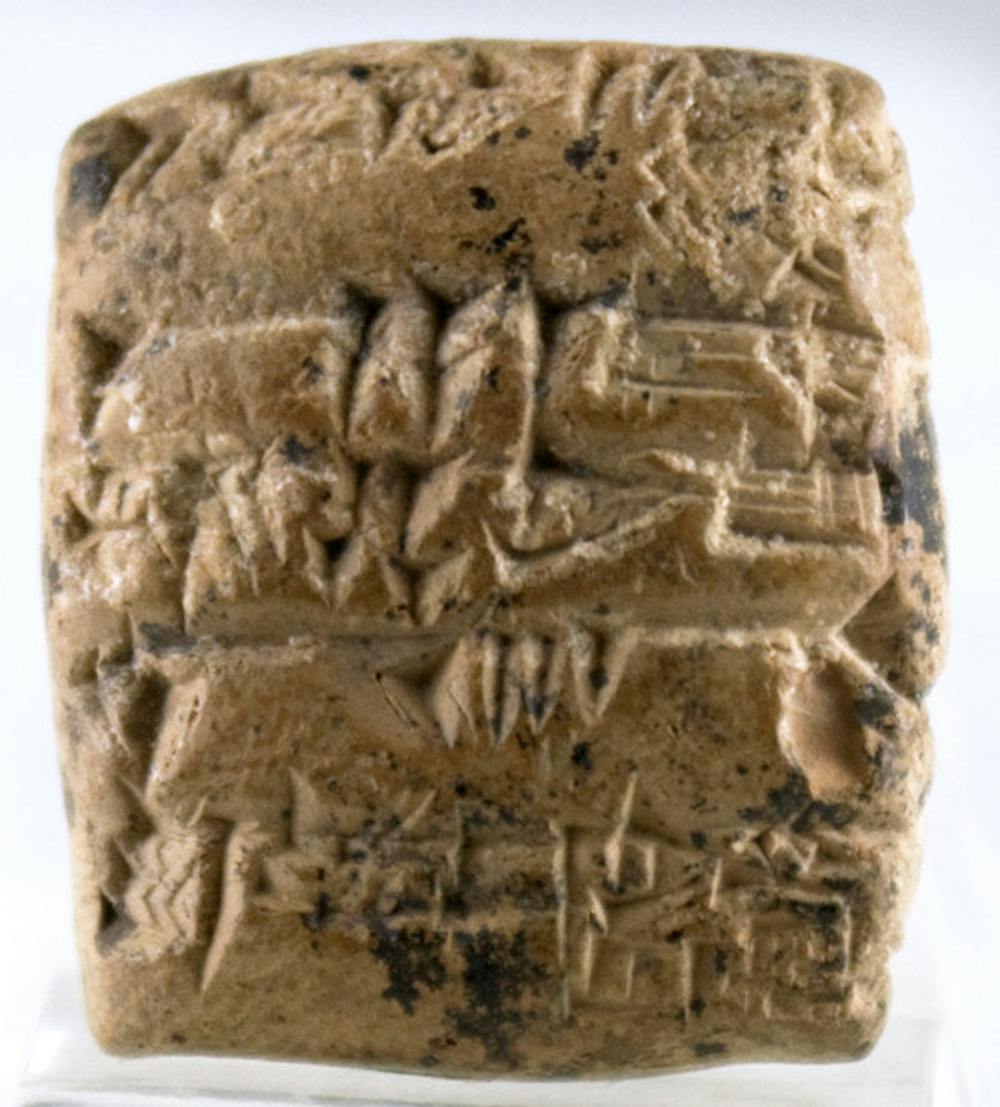It was a long day and an even longer week. The weather was hot, the fields labor-intensive. All this poor guy wanted was to relax with a nice drink. So, Friday evening, he pulls together a small lump of clay and with his stylus scratches a note: “4 beer.”
Or, to use a more expert translation, “Three liters of first-rate beer,” according to alumni Seth Richardson ’90. Beer, both a refreshing (and safe!) beverage as well as a gift from the goddess Ninkasi, dates back at least 3,000 years to ancient Mesopotamia (in modern Iraq). Our protagonist’s proto-Venmo request was (hopefully) handed to the local keeper of beer in exchange for a jolly night out. There it sat, possibly until an invading army burnt the building in which it was kept, accidentally firing the clay and preserving it so thousands of subsequent generations can see that, before inflation, a one-inch lump of clay got you three liters of classy booze.
This is all speculation. What is certain, though, is that this beer receipt sat somewhere in the world for the last 4,000 years, outlasting nearly everything we know about human culture and a good deal that we don’t know. This small tablet now resides, available for any student to view, in the college’s Special Collections.
To some (myself included), the prospect of our small school owning a 4,000-year-old cuneiform tablet is amazing in its own right. To others, admittedly less so. It is easy to be impressed by things of extreme age, of ‘historic-value,’ and, frankly, things that sound like they should be impressive. Yet, when we ask what really makes an item like this special, we can find a more human answer.
Poetic license allows me to refer flippantly to this tablet as a ‘proto-Venmo request,’ yet the comparison is apt. Setting aside concerns of technology and fashion, the two are not so different. This is part of the humility of this tablet; it has no real historical importance save for the fact that it’s lasted so long in the same way that 4,000 years from now, your Venmo history could provide archeologists valuable insight into our modern society if only for the reason that it is, in its own time, entirely unremarkable.
It is this common — even banal — aspect of the tablet that now fills it with meaning. In it, we find proof of a long history of enjoying beer, a history carried on by other Mesopotamians, by Medieval knights, by Martin Luther and his fellow Protestant monks, by American founding father Sam Adams and by Middlebury students today, to name just a miniscule few examples.
The past is not a place for strangers, although people in the past seem admittedly obscured to us, clouded by the thousands of intervening miles and years. It can seem that they live worlds apart from our daily lives. Yet if we look closely, we have a lot to bond over with those who have come before us.
After all, if we’ve all been buying beers for the last 4,000 years, what other experiences do we share?
The Past is Not a Place for Strangers: Beer and Special Collections

COURTESY PHOTO
This cuneiform tablet is one of many unique and fascinating objects housed in Middlebury’s Special Collections and can be viewed whenever they are open.
This cuneiform tablet is one of many unique and fascinating objects housed in Middlebury’s Special Collections and can be viewed whenever they are open.
Comments



